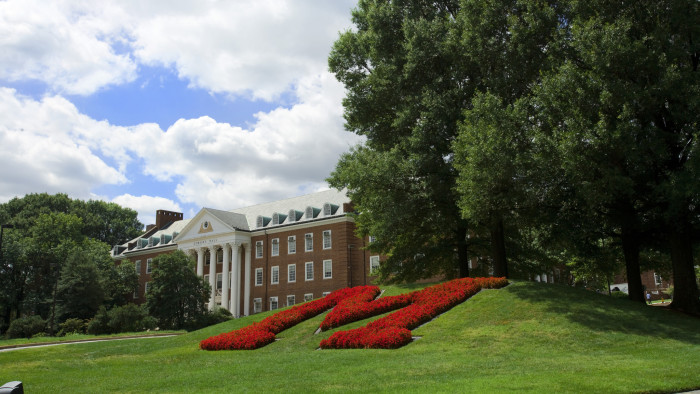Smith sets store by practical change

Roula Khalaf, Editor of the FT, selects her favourite stories in this weekly newsletter.
The Robert H Smith School of Business is firmly established as a research heavyweight – it was in the top 10 for business and management research in this year’s FT Global MBA Ranking. Now, the University of Maryland school is looking to use this strength to promote practical change.
“We have achieved strong recognition for the work we do,” says Anand Anandalingam, dean of the school, “but we are striving to have greater influence on the real world.”
Since Anandalingam took the helm in 2008, a series of initiatives have been launched with this in mind. Two of these – the Center for Financial Policy and the Center for Social Value Creation – aim to take advantage of the proximity of the campus in the Washington greenbelt to the institutions and organisations in the heart of the city.
The CSVC, for example, can draw on the presence of non-profit organisations based on nearby Capitol Hill. “I am not sure we could have come so far without being in Washington,” says Melissa Carrier, the centre’s executive director.
The essence of the centre, which co-ordinates corporate partnerships and student volunteer programmes, is to show how for-profit business principles can be harnessed to deliver social benefits.
“The corporate social responsibility movement has only delivered compensation, not value,” says Carrier. The theme of social responsibility and value creation is being integrated into the MBA. “Within all sectors, we want Smith graduates to be agents for positive change in their organisations,” she adds.
Smith’s entrepreneurial spirit and emphasis on experiential learning are married in the Dingman Center for Entrepreneurship, which encourages and co-ordinates student start-ups. “Developing ideas is key to gaining business literacy,” says Elana Fine, associate director. “Where better than university to take risks?”
The hands-on learning approach is epitomised by Brent Goldfarb, in whose entrepreneurship class students pitch and launch start-up companies. The students engage in a Darwinian competition in which one company is eliminated each week. Eliminated students must negotiate a stake, or terms of employment, with the remaining firms.
“I got bored of assessing abstract business plans. I want the students to actually just go out and learn by doing,” says Goldfarb.
Since 2005, more than 75 companies have been launched through the centre, assisted by “entrepreneurs in residence” and early investments from a network of “angel” investors.
The school has a growing portfolio of masters programmes. There are four one-year master of science in business programmes, specialising in accounting, finance, information systems and supply chain management. Next year will see the launch of a fifth, in marketing analytics.
“While application numbers for the MBA are still strong, it is demand for specialised masters degrees that we see growing,”says Anandalingam.
Comments